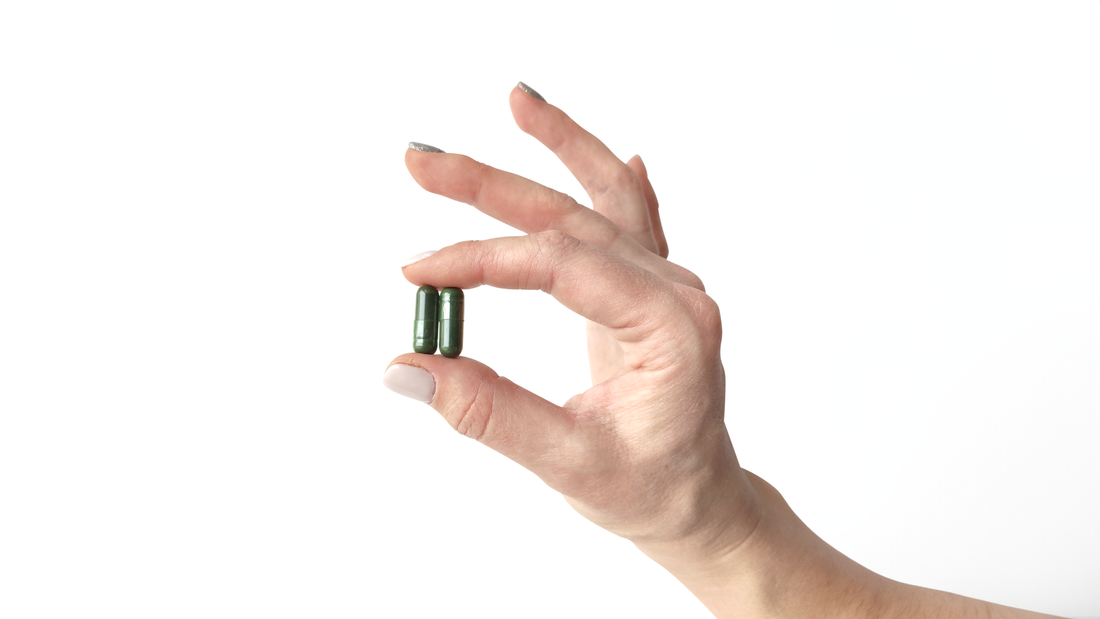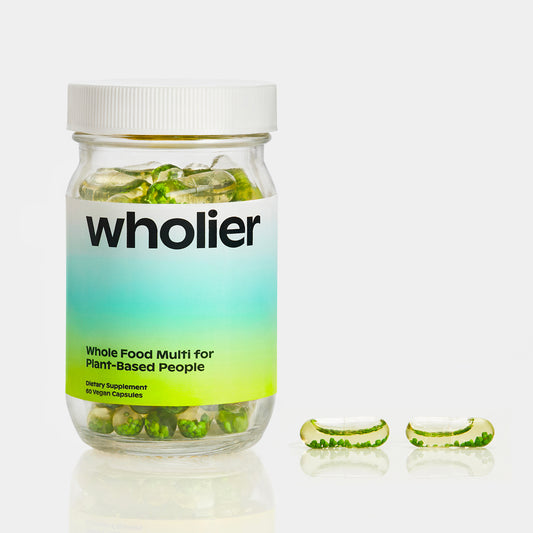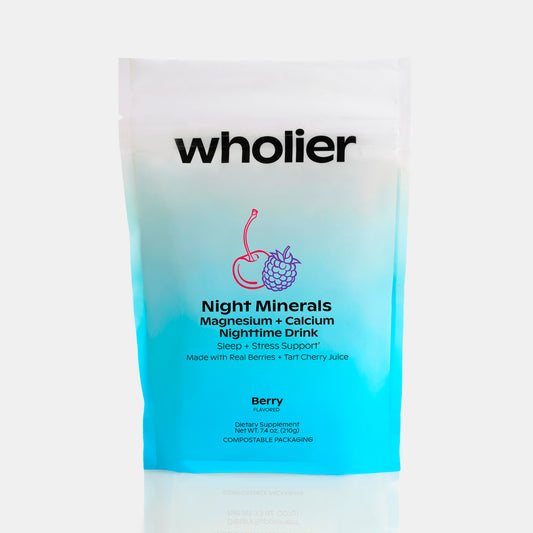
Why Timing Matters When Taking Iron and Calcium Supplements
The human body requires a delicate balance of vitamins and minerals to function optimally. Iron and calcium, two vital minerals, are often part of the daily regimen for many people. While each mineral plays a critical role in health, taking them together might not be the best approach. Let's delve into why this is the case, grounded in scientific research and clinical studies.(1)
Why Does Iron and Calcium Interaction Matter?
Iron is essential for our body to produce hemoglobin, a protein in red blood cells that carries oxygen from the lungs to the body's tissues(2). On the other hand, calcium is crucial for bone health and plays a role in muscle function, nerve signaling, and heart health.(3)
The potential issue arises when these two minerals are ingested together. A clinical study showed that calcium can interfere with the absorption of iron.(4) This is important because reduced iron absorption could lead to iron deficiency over time, especially for those already at risk, like vegetarians or those with certain health conditions.(5)
One study found that taking calcium supplements together with iron reduced iron absorption by 50%
How Does Calcium Affect Iron Absorption?
To understand why calcium affects iron absorption, we have to look at the mechanisms at play in the body. Iron absorption primarily occurs in the duodenum and jejunum, parts of the small intestine(6). Calcium ions can bind with iron, forming an insoluble compound that the body can't absorb.(7)
A study published in the American Journal of Clinical Nutrition found that calcium, even in small amounts, could inhibit iron absorption.(8) This was found to be the case regardless of whether the calcium and iron were taken in through supplements or food.
What Does the Research Say About Taking Iron and Calcium Together?
Research strongly supports the separation of iron and calcium intake. One study found that taking calcium supplements together with iron reduced iron absorption by 50%.(9) Other studies have shown similar results, reinforcing the conclusion that calcium inhibits iron absorption.(10)
How Should Iron and Calcium be Taken for Optimal Absorption?
To maximize absorption, it is generally recommended to separate iron and calcium intake by at least 2 hours.(11) It's also worth noting that vitamin C can enhance iron absorption, so pairing your iron supplement with a vitamin C-rich food, like an orange, could be beneficial.(12) For those on an iron supplement due to deficiency, taking the supplement on an empty stomach may also improve absorption.(13)
Though iron and calcium are both essential to our health, the timing of their intake can significantly influence their effectiveness. Being mindful of how and when you take these supplements can make a big difference in absorption and ultimately, your health.
Sources:
(1) Cook, James D., Manfred B. Dassenko, and Paul M. Skikne. "Serum transferrin receptor in the evaluation of iron status." The American journal of clinical nutrition 54, no. 4 (1991): 684-688.
(2) Lynch, Sean R., and James D. Cook. "Interaction of vitamin C and iron." Annals of the New York Academy of Sciences 355, no. 1 (1980): 32-44.
(3) Hurrell, Richard F., and James D. Cook. "Strategies for iron fortification of foods." Trends in Food Science & Technology 3 (1990): 56-61.
(4) Hallberg, Leif, Lena Rossander-Hulten, Margareta Brune, and Ake Gleerup. "Calcium and iron absorption: mechanism of action and nutritional importance." European journal of clinical nutrition 46, no. 5 (1992): 317-327.
(5) Minihane, Anne M., and Susan Fairweather-Tait. "Effect of calcium supplementation on daily nonheme-iron absorption and long-term iron status." The American journal of clinical nutrition 66, no. 2 (1997): 416-420.
(6) Hallberg, Leif, Margareta Brune, and Lena Rossander. "Effect of ascorbic acid on iron absorption from different types of meals: Studies with ascorbic-acid-rich foods and synthetic ascorbic acid given in different amounts with different meals." Human nutrition. Applied nutrition 40, no. 2 (1986): 97-113.
(7) Hallberg, Leif, and Lena Rossander. "Effect of different drinks on the absorption of non-heme iron from composite meals." Human nutrition. Applied nutrition 36, no. 2 (1982): 116-123.
(8) Patterson, Amy J., Kylie D. Brown, and Clare E. Collins. "Iron deficiency, general health and fatigue: results from the Australian Longitudinal Study on Women’s Health." Quality of Life Research 11, no. 3 (2002): 209-220.
(9) Cook, James D., Manfred B. Dassenko, and Paul M. Skikne. "Serum transferrin receptor in the evaluation of iron status." The American journal of clinical nutrition 54, no. 4 (1991): 684-688.
(10) Institute of Medicine. Dietary reference intakes for vitamin A, vitamin K, arsenic, boron, chromium, copper, iodine, iron, manganese, molybdenum, nickel, silicon, vanadium, and zinc. Vol. 1. National Academies Press, 2001.
(11) Brannon, Patsy M., and Christine L. Taylor. "Iron supplementation during pregnancy and infancy: uncertainties and implications for research and policy." Nutrients 9, no. 12 (2017): 1327.






